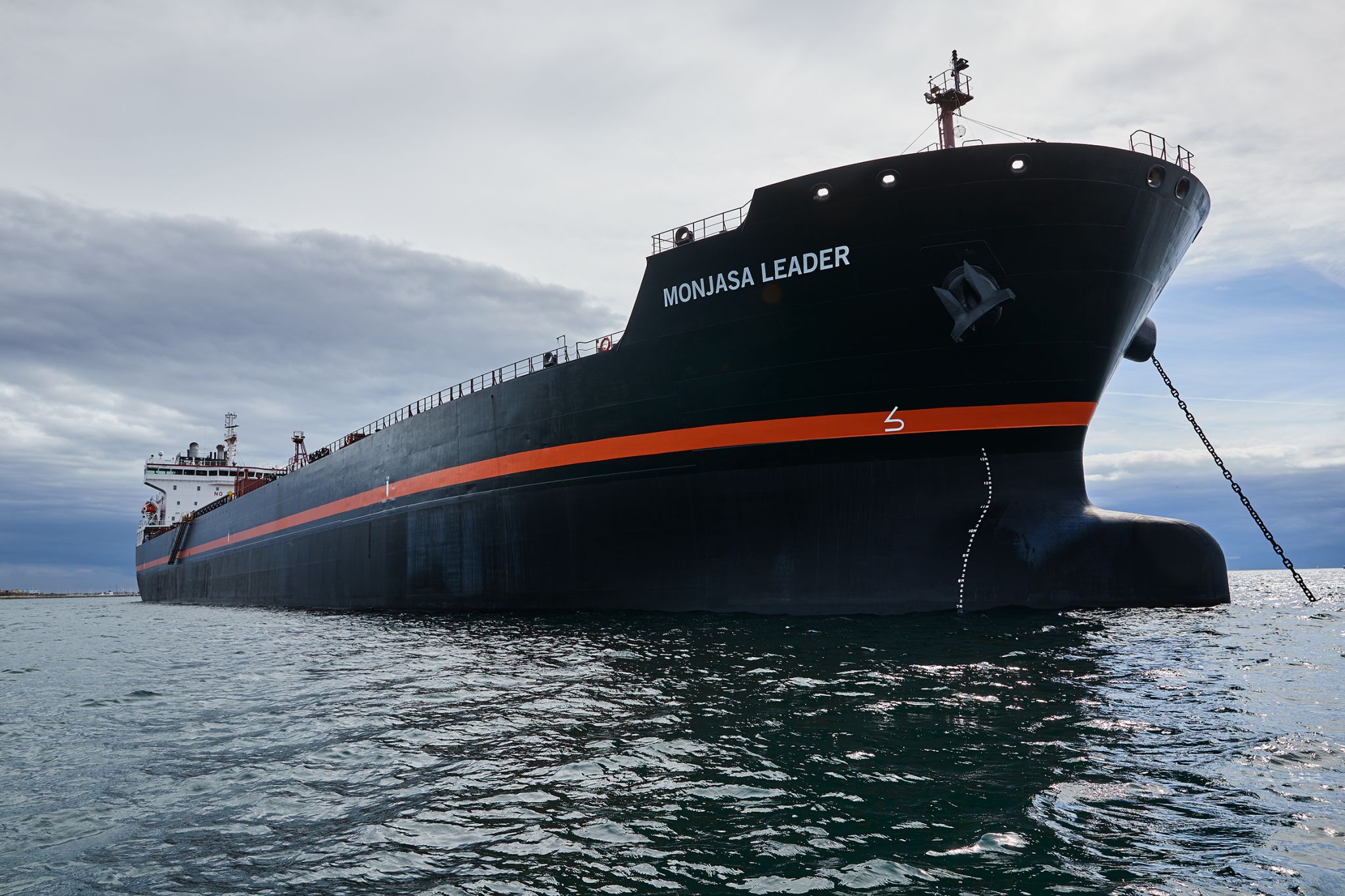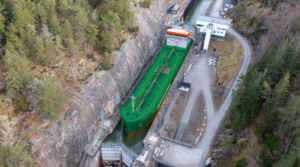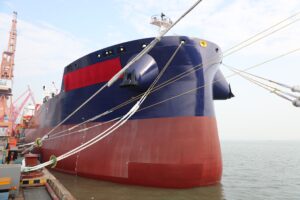The Danish-based global bunker supplier, Monjasa, which remains active in the market for second-hand tonnage following the acquisitions of three tankers earlier this year, adds two more units to its fleet portfolio.
The company has recently taken delivery of two more tankers, Monjasa Leader of 68.589-dwt, ex-Cabo San Antonio, in Algeciras, Spain and Monjasa Refiner of 13,051-dwt, formerly known as Saturn, in Bremerhaven, Germany.
The units, which were dry docked for renewal surveys, have been added to Monjasa´s fleet and will be used for floating storage and bunker operations in West Africa.
The bunker supplier said the number of Monjasa-owned vessels has increased since 2018 from five to 13 to ensure highly specialised operational standards, while at the same time lowering overall operating costs.
The top management of Monjasa explains today that its new addition, Monjasa Leader, becomes its largest fleet member, and represents the company´s single most important tanker acquisition ever.
The vessel Monjasa Leader replaces SKS Dokka (119,456-dwt), which has served Monjasa on time charter for the past three years.
At the same time, Monjasa has finalised the selling process of the 13,781-dwt oil and chemical tanker, Monjasa Runner, which will be repositioned from West Africa to the Mediterranean Sea for continued operations with her new owners.
Overall, the Middle East and Africa accounts for 27% of Monjasa’s total volume of 6.4m tonnes of bunkers supplied in 2022, while Monjasa’s fleet comprises some 30 tankers and barges deployed worldwide.
Torben Maigaard Nielsen, group shipping director at Monjasa, said: “The Monjasa Leader becomes our largest fleet member and represents our single most important tanker acquisition ever. Given the limited opportunities of storing fuel products ashore, our floating storage solution is the backbone of our West Africa marine fuels operations and allows for our supply tankers to frequently go alongside the vessel to load cargo.”
“Providing maritime end-to-end logistics in West Africa is a challenging task, but we are confident that our two new vessels bring the efficiency and flexibility needed.”



